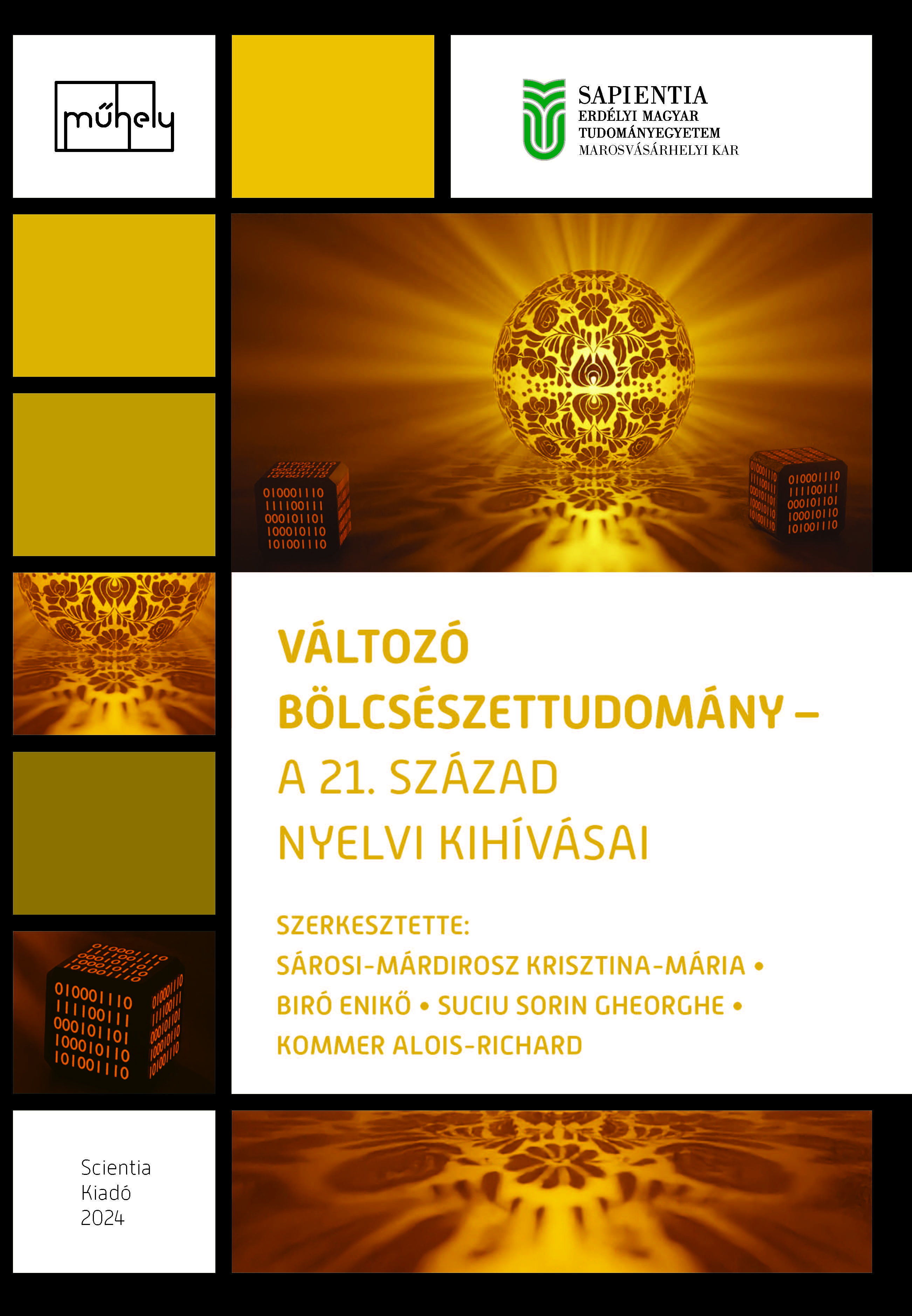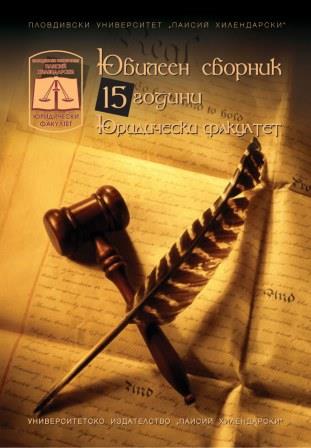
Право и литература
The Roman Empire attached particular importance to the processes of forming a universal law that regulated the life of the entire empire. In this article, the main guidelines on which Roman law was built will be indicated.
More...We kindly inform you that, as long as the subject affiliation of our 300.000+ articles is in progress, you might get unsufficient or no results on your third level or second level search. In this case, please broaden your search criteria.

The Roman Empire attached particular importance to the processes of forming a universal law that regulated the life of the entire empire. In this article, the main guidelines on which Roman law was built will be indicated.
More...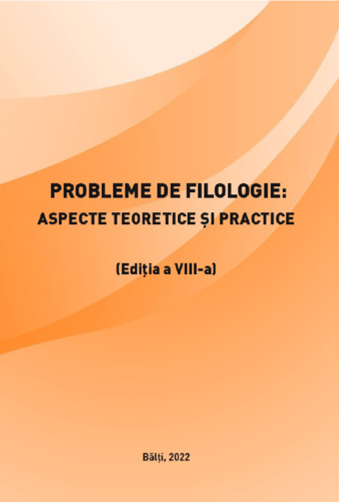
Tema de acasă a fost cercetată mai mult de o sută de ani de mai mulţiprofesori. Tema de acasă este definită ca un set de cerințe destinate a fi efectuateîn afara orelor de clasă, ca o prelungire a activității de studiu prin activitateindividuală, teoretică sau practică, de documentare sau elaborare a unei lucrari desinteză sau a unor proiecte pe baza cunostințelor dobândite în clasă.Tema pentru acasă favorizează însuşirea tehnicilor de informare şi de studiu,dezvoltarea creativității, cultivarea unui stil de muncă intelectuală independentă,îl învață pe elev sau student să îmbine cunoștintele generale sau specificedisciplinei acumulate până atunci, cu informațiile primite în timpul orei.
More...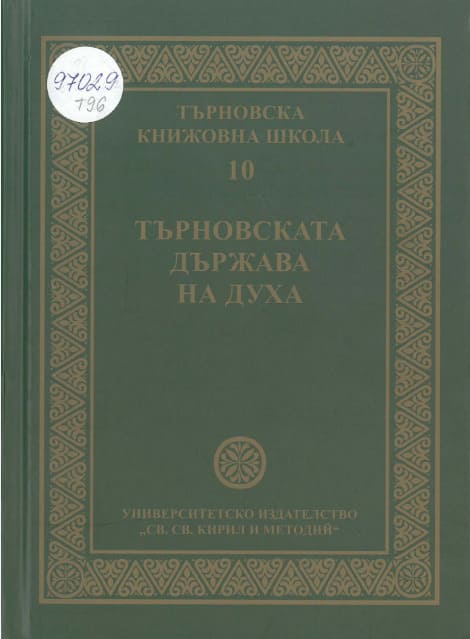
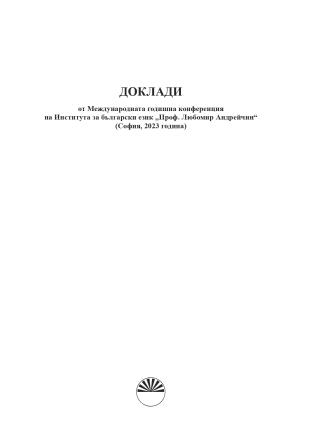
The paper presents the results of a new study on the syntactic structures of simple two-component sentences in the works of Yordan Yovkov, Emilian Stanev and Yordan Radichkov. Statistical prognostic methods support the syntactic analysis and enrich it with quantitative data on the makeup of the simple sentence. The observed quantitative characteristics are the scope and depth of the sentence structure, as well as the forms of connection – subordination or coordination. Statistical and syntactic inferences are made that support the study of authors’ individual grammar in an innovative way.
More...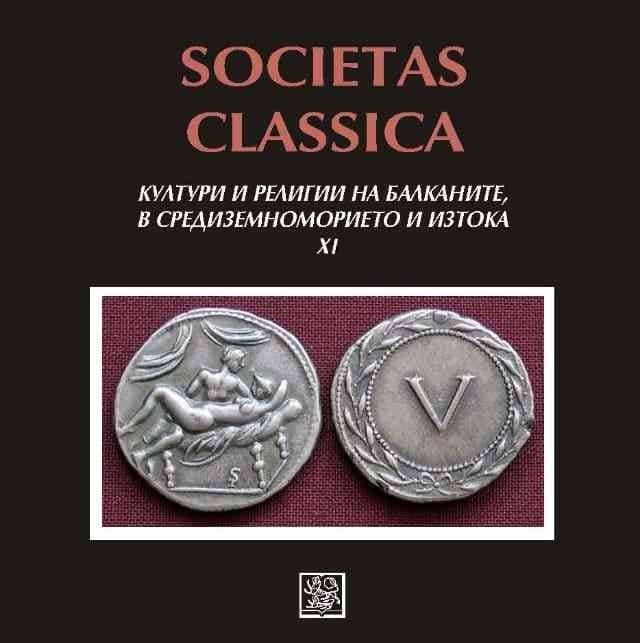
This report examines the Bulgarian-Cypriot relations in the field of literature. For this purpose, various articles, books and interviews with well-known researchers of Cypriot literature have been studied. Some accents and events from the history that have a direct impact on the literary relations between Cyprus and Bulgaria are considered. The research of the Bulgarian-Cypriot relations in the field of literature unfolds the chronology of their origin, their development during some of the more significant historical periods, as well as the interaction of the Bulgarian and Cypriot literature to the present day. Some similar characteristics between Bulgarian and Cypriot literature are indicated. Researchers of Cypriot literature, considered in this article, outline the origin and development of the connections of Cypriot literature and its interaction with Bulgarian literature. In addition they reveal the way in which Cypriot literature is popularized in Bulgaria, as well as the popularization of Bulgarian literature in Cyprus.
More...
Despite the many and varied opportunities, there has been a decline in recent years when it comes to Japanese students who wish to study in Japan. This paper examines the possibilities for study in Japan for different periods of time, as well as its funding. Statistics from previous years are offered, as well as the results of a survey conducted among students in 2020. The results indicate the reasons for the decline in interest, and these are far from being limited only to the “different” academic year 2019/2020. Motivation and attitudes towards learning in Japan are based on problems of all kinds, which have always existed among the departing, but have recently become more intense. It turns out that the detailed information, provided by students returning from Japan to potential future candidates is too general or provided in an inappropriate format. The paper proposes solutions for the appropriate provision of more information, as well as side incentives to increase the interest of Sofia University Japanese studies students towards study in Japan programs.
More...
The present paper focuses on: 1) The Japanese culture and language events in Bulgaria and 2) The correlation between those and the motivation of the Japanese language learners. The connection between 1) and 2) is revealed through an analysis of data taken from a workshop on Methodology of teaching Japanese as a second language which was organized in 2018 at Veliko Tarnovo University. The discussion is carried on from the point of view of the Japanese language lecturers who participated in the above mentioned initiative. According to the Japanese language lecturers there is a great variety of Japanese culture and language events organized every year by each of the participant institutions. They aim not only at popularizing Japanese culture, but also at stimulating the interest of the Japanese language learners. Through the direct participation in such initiatives the learners are encouraged to develop different language, cultural and intercultural skills and competencies and to study autonomously. The research pointed out that there is definitely a firm relation between those events and the motivation of the Japanese language learners. The events with the strongest effect on the motivation process are: Japanese culture festivals, speech contests, Japanese universities’ scholarships and the opportunity to study in Japan, the communication with the native speakers, etc.
More...
This research discusses some cultural differences and methods of translation represented in the first sixty chapters of the Bulgarian translation of 𝐻𝑜𝑛𝑔𝑙𝑜𝑢𝑚𝑒𝑛𝑔, popular in the Western World mainly with its two English versions as 𝑇ℎ𝑒 𝑆𝑡𝑜𝑟𝑦 𝑜𝑓 𝑡ℎ𝑒 𝑆𝑡𝑜𝑛𝑒 and 𝐴 𝐷𝑟𝑒𝑎𝑚 𝑜𝑓 𝑅𝑒𝑑 𝑀𝑎𝑛𝑠𝑖𝑜𝑛𝑠, as well as its Russian translation 𝑆𝑜𝑛 𝑣 𝑘𝑟𝑎𝑠𝑛𝑜𝑚 𝑡𝑒𝑟𝑒𝑚𝑦𝑒. The Bulgarian translation of the first 60 chapters of 𝐻𝑜𝑛𝑔𝑙𝑜𝑢𝑚𝑒𝑛𝑔 („Сън в алени покои“) was published almost half a century after the English and the Russian translations at 2015 and 2016, so it is quite interesting to see if there is any resemblance in translations of cultural gaps. This study gives few examples of how cultural gaps are resolved in words and phrases concerning Chinese tea and rice dishes.
More...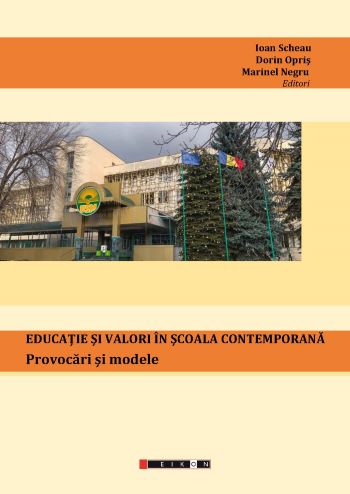
The aim of the modern methodology of teaching Romanian language and literature at a younger school age is for students to become as independent as possible in the process of acquiring knowledge. Bearing this in mind, the authors emphasize the importance of the problematic process of processing a literary work on the example of the folk tale Three Friends, the application of which enables a more successful experience and understanding of literary texts, different forms of interpretation and creative expression in children of younger school age. The problem-based approach to the interpretation of literary texts engages the individual and creative abilities of students to the highest degree, which leads to an easier solution to the problem situation. The final part of the paper presents the results of the conducted research on the attitudes of students of younger school age who attend classes in the Romanian mother tongue, after the application of the problem-based procedure in the processing of the folk tale.
More...
The goal of the present article is to investigate how the Phenomenon-BasedLearning Approach can be applied in teaching the speech act of praise. Beinglearner-centred, Phenomenon-based learning is a rather new multidisciplinaryteaching style based on learner inquiry and problem solving activities. Itsnovelty lies in the procedure within which the students themselves, under theguidance of teachers, choose a topic (phenomenon), decide what they want toknow about it, explore and answer their own questions using and applyingexisting knowledge from various subjects appropriate to the solving of the setgoals. We propose the scenario of such an activity following some of the stepsspecific for the PhBL approach.
More...
The terminology used in the Language and Communication curriculararea contains numerous specifically philological vocabulary units. Theinterdisciplinary potential of philological terminology comes into play when aword that is a legitimate linguistics or literary theory term passes into social andhuman sciences or arts, with slight semantic adjustments. The transdisciplinarypotential of philological terminology may be perceived in certain situations,amongst which we could name a lexicographic approach to words; perceivingsemantic processes, which also involves terms; the use and the specificsemantisation of terminological word combinations, with common elementsappearing in various terminological systems, as well as the assimilation ofalgorithms for the fulfilment of intellectual operations and the development ofassessable products
More...
Phrase, Grabar (Old Armenian), German, translation, definition.Summary: Phrases of Grabar և their German translations. The following work isdedicated to the comparative study of the old Armenian phrases and their Germantranslations. A number of Grabarian historiographical works of the 5th-12thcenturies, their German translations, were chosen to be the basis for the research. Asa result of the study, the boundaries of the term "phrase" were clarified, the vitalityof the old Armenian phrases today was revealed, their capabilities of wordformation, of course, the possibilities of translating Old Armenian phrases intoGerman, the peculiarities of linguistic mentality of the two nations.
More...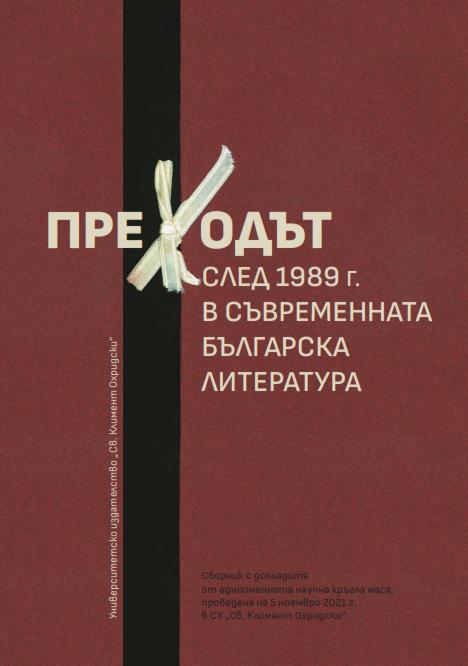
Based on a survey carried out in 2020, the article aims to explore and explain the complex character of the transformations in Bulgarian society after the fall of the Communist regime in 1989. The analysis focuses on a ten-year period of Bulgarian history whose social, demographic, economic and political changes are regarded as important preconditions for the cultural specificity of Bulgaria’s Transition. Among the important emphases in the study are the people’s conception of historically marked time through their individual biographies, as well as the construction of memories of personal experience by inscribing major political events into them, followed by their alignment on the general social plane. Other key results from the survey relate to the films and books favoured by the Bulgarians, the horizon of reception determining their choice, preferred kinds of music and the formation of a common musical culture. Of interest to the study is also the language of the media and the mechanisms of their transformation into an integral element in the formation among the Bulgarians of expectations, attitudes and conceptions of themselves and the world, and the establishment of the latter in the public discourse. In addition, attention is paid to certain phenomena in the domain of culture, such as pop folk songs, TV soaps and telenovelas, which enjoyed immense popularity and wide circulation.
More...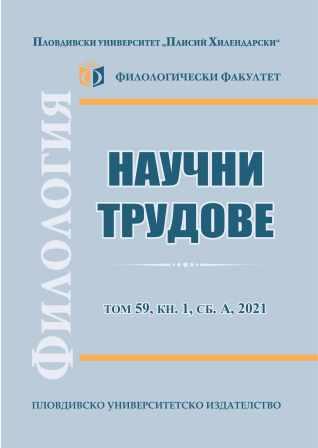
This paper analyses – on the basis of the surviving documents – the context in which in September of 1658, citizens of Chiprovtsi sent a letter to the pope asking him to secure the salary for the teacher in their catholic school Ivan Lilov/Lilich. A facsimile edition of the document written in Venetian Cyrillic in Illyrian is provided, accompanied by a translation into present-day standard Bulgarian.
More...
Nikola Mihaylovski is best known in the history of the modern Bulgarian literary language as a co-founder, along with Ivan Momchilov, of the Tarnovo School of Linguistics and Spelling. His contribution to the formation of the epistolary style of the modern Bulgarian literary language has not been studied so far. The article examines his book Little Bulgarian Letter book, 1868. His theories about the types of letters are presented. The etiquette of letter templates that he presents in his textbook is analysed, as is the specific terminology used.
More...
Letters from Yordanka Filaretova, a native of Sofia, to Maria Burmova are analysed for linguistic variants before the official codification of Bulgarian orthography in 1899. Filaretova's mobility, specifically her long-term residence in Istanbul, suggests loose (i.e. more dispersed rather than dense) social networks that correlate with innovations in linguistic norms and the diffusion of linguistic change. The paper thus contributes to the study of the linguistic history of norms listed below, that is, the value of language variants by speakers who were not centrally involved in debates about what language variants should eventually be chosen for the Bulgarian literary language.
More...
The article is dedicated to three textbooks in stylistics, published at the turn of the twentieth century, which marks the beginning of modern Bulgarian stylistics. The book of R. Puhlev contains a short theoretical part. The books of B. Angelov and V. Yordanov are impressively modern with regard to the included problems, as well as the used terms and their definitions. The two texts are juxtaposed and some of the theoretical accomplishments of the authors are highlighted. Both books have been written for didactic purposes, yet they are fundamental for the development of stylistics in Bulgaria.
More...
The Conjunctions chtoby ‘so that, in order to’ and daby ‘so that, in order to’ arose almost simultaneously in Russian (the first, most likely, in Church Slavonic texts), moreover, in the period from the 15th to the 17th centuries there was no strict distinction between them, although there had already been a tendency for more frequent use of chtoby in administrative and everyday texts, and of daby in Church Slavonic texts. On the other hand, the data of modern languages (19th – 21st centuries), both Russian and Church Slavonic, indicate that at some point chtoby was finally ousted from the “synodal” Church Slavonic, and daby in Russian already was already perceived as a “bookish” and archaic conjunction. The author puts forward the thesis that the roots of the named functional and stylistic differentiation should be sought in the 18th century, the period when separate Church Slavonic and Russian literary languages were born.
More...
In this work my purpose is to analyze the perception of reality in René Arav’s testimony story Diplomates et espions français, héros oubliés, Balkans 1940 – 1945 and Romain Gary’s novel La nuit sera calme. The interpreted events took place in Bulgaria during and after WWII . I have chosen to found my study on Tzvetan Todorov’s works Le siècle des totalitarismes and Les abus de la mémoire.
More...